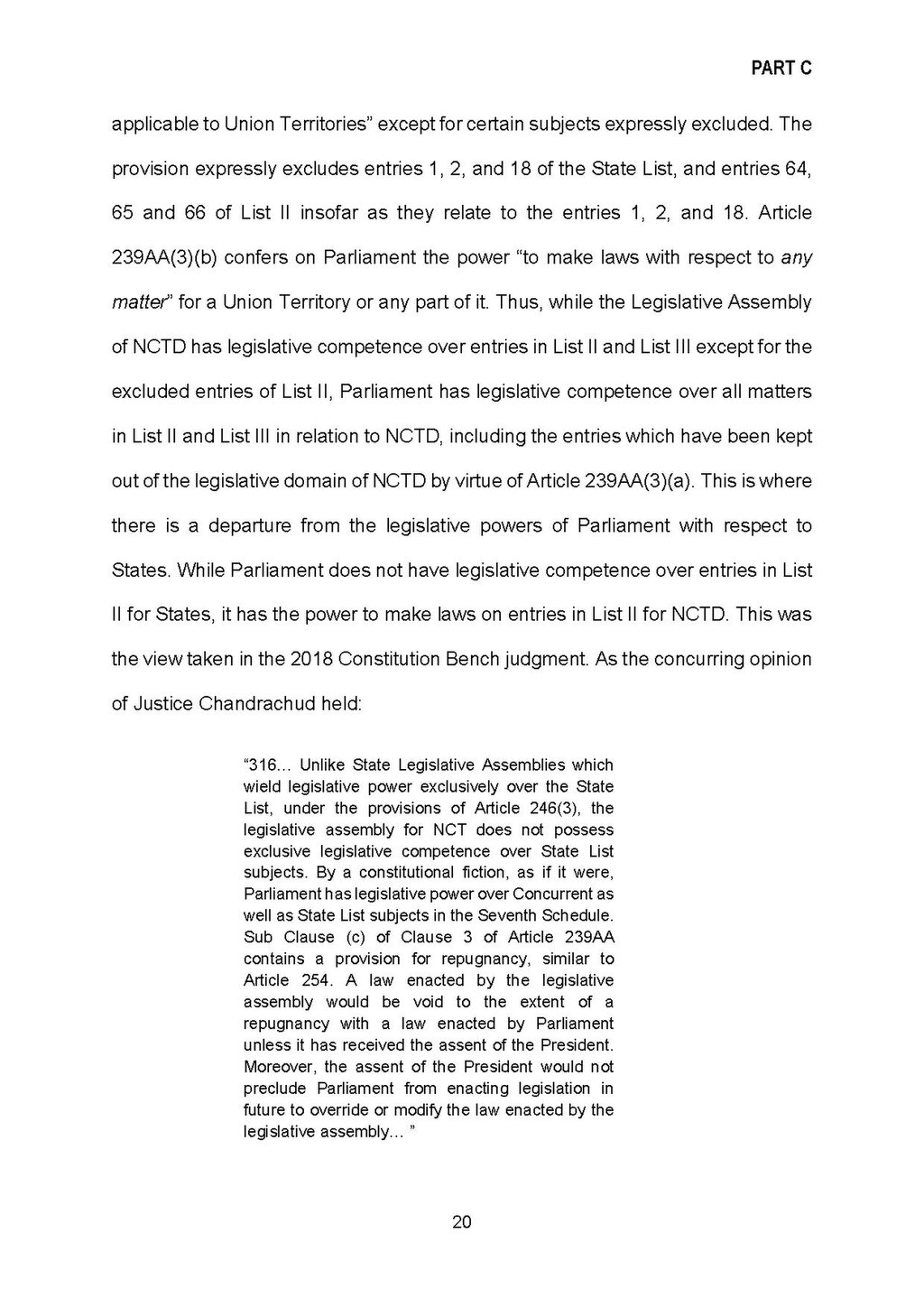applicable to Union Territories” except for certain subjects expressly excluded. The provision expressly excludes entries 1, 2, and 18 of the State List, and entries 64, 65 and 66 of List II insofar as they relate to the entries 1, 2, and 18. Article 239AA(3)(b) confers on Parliament the power “to make laws with respect to any matter” for a Union Territory or any part of it. Thus, while the Legislative Assembly of NCTD has legislative competence over entries in List II and List III except for the excluded entries of List II, Parliament has legislative competence over all matters in List II and List III in relation to NCTD, including the entries which have been kept out of the legislative domain of NCTD by virtue of Article 239AA(3)(a). This is where there is a departure from the legislative powers of Parliament with respect to States. While Parliament does not have legislative competence over entries in List II for States, it has the power to make laws on entries in List II for NCTD. This was the view taken in the 2018 Constitution Bench judgment. As the concurring opinion of Justice Chandrachud held:
“316… Unlike State Legislative Assemblies which wield legislative power exclusively over the State List, under the provisions of Article 246(3), the legislative assembly for NCT does not possess exclusive legislative competence over State List subjects. By a constitutional fiction, as if it were, Parliament has legislative power over Concurrent as well as State List subjects in the Seventh Schedule. Sub Clause (c) of Clause 3 of Article 239AA contains a provision for repugnancy, similar to Article 254. A law enacted by the legislative assembly would be void to the extent of a repugnancy with a law enacted by Parliament unless it has received the assent of the President. Moreover, the assent of the President would not preclude Parliament from enacting legislation in future to override or modify the law enacted by the legislative assembly… ”
20
